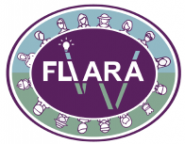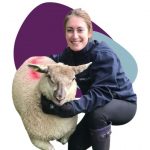In the heart of Baden-Württemberg, where fertile fields stretch towards the foothills of the Alps and the breeze carries a hint of Lake Constance’s freshness, an agricultural transformation is quietly taking root. At its centre stands Linda Kelly — organic farmer, innovator, and award-winning entrepreneur — who, alongside her husband and parents, is redefining the future of farming with vision, determination, and a remarkable little legume: the sweet lupin.
Linda’s farm is no ordinary patch of countryside. It’s a symphony of sustainability and ingenuity: 300 hectares of grassland and arable land teeming with diversity, 16 different crops under Bioland certification, beef cattle roaming free, and even renewable energy being produced on-site. But the true gem of the farm? The sweet lupin.
Often dubbed the “domestic soya,” this humble legume has become the cornerstone of Linda’s vision for a more resilient, health-conscious, and sustainable food system. “When I joined my parents’ farm,” she recalls, “I asked myself—where is my place here? Where can I grow?” The answer came, almost by chance, through the cultivation of sweet lupins. From there, Linda’s entrepreneurial spirit took root.
What began as curiosity soon flourished into a full-fledged enterprise. Linda now processes lupins into an impressive array of dry products: coffee alternatives, seasonings, flours, meals, and flakes. The innovation doesn’t stop at the kitchen, either—lupin oil is used in both spirits and cosmetics, with virtually every byproduct repurposed within the farm’s ecosystem. “It’s all about the circular economy,” Linda says. “We don’t waste anything.”
Her first product—lupin coffee—was met with scepticism. “Everyone said, ‘What do you want with coffee that doesn’t have caffeine?’” she laughs. “But I was determined. That challenge became my motivation.” Today, that very product sits proudly in her farm shop and is distributed through online sales and resellers across the region.
Running the farm in accordance with Bioland principles means that Linda’s practices aren’t just good for business—they’re good for biodiversity, soil health, and future generations. In a time of decreasing meat consumption and a growing demand for plant-based proteins, Linda’s lupins offer a timely and nutritious solution. “They’re not just good for people’s diets,” she notes, “but for our fields, too.”
Recognition has followed. Linda was named “Entrepreneur of the Year” by the German Rural Women’s Association in 2018 and received the prestigious CERES Award in 2019. But for her, the accolades are less about prestige and more about visibility. “Being a woman in farming, especially one with unconventional ideas, hasn’t always been easy,” she admits. “I was often laughed at. But with the support of my family and belief in my vision, we’ve turned those doubts into something truly meaningful.”
A passionate advocate for women in agriculture, Linda sees the FLIARA project—which brings together female rural innovators across Europe—as a critical platform for change. “It’s powerful to connect with other women, to learn from each other, and to build something bigger than ourselves. This kind of network gives us strength and visibility. It’s how we move forward.”
Looking ahead, Linda is brimming with ideas. A new manufacturing facility has just opened, and with it, a whole wave of new lupin-based creations is on the horizon. “I’m excited about the future,” she says. “And FLIARA is a part of that—connecting us across borders, sparking collaborations, and opening up new value chains.”
Her advice to other women with ideas tucked away in notebooks or whispered over cups of tea? “Just do it. Be bold. Stick with it. Connect with others. And never let doubt silence your ambition. Often, it just takes one person to go first for others to follow.”
For Linda Kelly, that spark of innovation began with a single bean—and now, it’s blossoming into a movement. One that is rooted in sustainability, community, and the unwavering belief that women have the power to transform the rural world.



